 | TODAY IN SCIENCE HISTORY NEWSLETTER - 17 JUNE |
| Feature for Today |
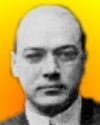 On 17 Jun 1876, Edward Anthony Spitzka was born, American anatomist and brain morphologist who autopsied (29 Oct 1901) the brain of Leon Franz Czolgosz, the assassin of U.S. president William McKinley. On 17 Jun 1876, Edward Anthony Spitzka was born, American anatomist and brain morphologist who autopsied (29 Oct 1901) the brain of Leon Franz Czolgosz, the assassin of U.S. president William McKinley.Throughout his career he studied the brain morphology of groups of famous people, different races, and criminals, thought ultimately he was unable to link traits to brain structure. This conclusion was the topic of a 1906 newspaper article, "Looking for 'The Face Within the Face' in Man," which describes his research, including his examination of Czolgosz's brain. |
| Book of the Day | |
| |
| Quotations for Today | |
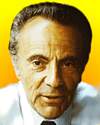 | "Myths and science fulfill a similar function: they both provide human beings with a representation of the world and of the forces that are supposed to govern it. They both fix the limits of what is considered as possible." |
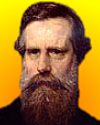 | "England and all civilised nations stand in deadly peril of not having enough to eat. As mouths multiply, food resources dwindle. Land is a limited quantity, and the land that will grow wheat is absolutely dependent on difficult and capricious natural phenomena... I hope to point a way out of the colossal dilemma. It is the chemist who must come to the rescue of the threatened communities. It is through the laboratory that starvation may ultimately be turned into plenty... The fixation of atmospheric nitrogen is one of the great discoveries, awaiting the genius of chemists." |
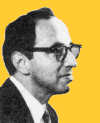 | "The resolution of revolutions is selection by conflict within the scientific community of the fittest way to practice future science. The net result of a sequence of such revolutionary selections, separated by periods of normal research, is the wonderfully adapted set of instruments we call modern scientific knowledge." |
| QUIZ | |
| Before you look at today's web page, see if you can answer some of these questions about the events that happened on this day. Some of the names are very familiar. Others will likely stump you. Tickle your curiosity with these questions, then check your answers on today's web page. | |
| Births | |
| |  George Cormack, born 17 Jun 1870, invented one of today's brand-name breakfast cereals. In 1921, a health clinician in Minneapolis, while mixing a batch of bran gruel for his patients, spilled some of the mix on a hot stove where it sizzled into a crisp flake. After tasting the very first prototype, he took the idea to the Washburn Crosby Company, where the head miller, George Cormack, took on the task of trying to strengthen the flakes to keep them from turning to dust inside a cereal box. Cormack tested 36 varieties of wheat before he developed the perfect flake. The brand name was chosen by a company wide contest won by Jane Bausman, the wife of the export manager. George Cormack, born 17 Jun 1870, invented one of today's brand-name breakfast cereals. In 1921, a health clinician in Minneapolis, while mixing a batch of bran gruel for his patients, spilled some of the mix on a hot stove where it sizzled into a crisp flake. After tasting the very first prototype, he took the idea to the Washburn Crosby Company, where the head miller, George Cormack, took on the task of trying to strengthen the flakes to keep them from turning to dust inside a cereal box. Cormack tested 36 varieties of wheat before he developed the perfect flake. The brand name was chosen by a company wide contest won by Jane Bausman, the wife of the export manager.  What is the name of the cereal brand? What is the name of the cereal brand? |
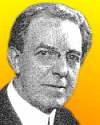 |  On 17 Jun 1867 is the birthday of an Irish-born American inventor of a shorthand system named for him. On 17 Jun 1867 is the birthday of an Irish-born American inventor of a shorthand system named for him. Can you name this man? Can you name this man? |
| Deaths | |
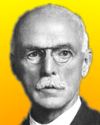 |  Sir Arthur Harden (1865-1940) was an English biochemist and corecipient, with Hans von Euler-Chelpin, of the 1929 Nobel Prize for Chemistry for work on the fermentation of sugar. Sir Arthur Harden (1865-1940) was an English biochemist and corecipient, with Hans von Euler-Chelpin, of the 1929 Nobel Prize for Chemistry for work on the fermentation of sugar.  What did he study in the fermentation process? What did he study in the fermentation process? |
| Events | |
 |  On 17 Jun 1928, an aviator embarked on a trans-Atlantic flight from Newfoundland to Wales; she was the first woman to fly across the Atlantic Ocean, though as a passenger in a plane piloted by Wilmer Stultz. In 1932, she became the first woman to fly solo across that ocean. On 17 Jun 1928, an aviator embarked on a trans-Atlantic flight from Newfoundland to Wales; she was the first woman to fly across the Atlantic Ocean, though as a passenger in a plane piloted by Wilmer Stultz. In 1932, she became the first woman to fly solo across that ocean. Can you name this woman? Can you name this woman? |
 On Jun 17 of a certain year, the first kidney transplant operation took place in Chicago in a 45-minute operation performed by Dr. Richard H. Lawler. On Jun 17 of a certain year, the first kidney transplant operation took place in Chicago in a 45-minute operation performed by Dr. Richard H. Lawler. In what decade did this operation take place? In what decade did this operation take place? | |
 On 17 Jun 1947, the first globe-circling passenger airline was inaugurated as it left New York. On 17 Jun 1947, the first globe-circling passenger airline was inaugurated as it left New York. Can you name this airline? Can you name this airline? | |
| Answers |
When you have your answers ready to all the questions above, you'll find all the information to check them, and more, on the June 17 web page of Today in Science History. Or, try this link first for just the brief answers. Fast answers for the previous newsletter for June 16: she was the first American woman to win an unshared Nobel Prize; it will predictably joins two carbon atoms from different molecules to form a double bond; Wernher von Braun; ether; the decade including the year 1903; Pepsi-Cola. |
| Feedback |
 If you enjoy this newsletter, the website, or wish to offer encouragement or ideas, please send feedback by using your mail reader Reply button. If you enjoy this newsletter, the website, or wish to offer encouragement or ideas, please send feedback by using your mail reader Reply button. |
--
If you do not want to receive any more newsletters, Unsubscribe
To update your preferences and to unsubscribe visit this link


Δεν υπάρχουν σχόλια:
Δημοσίευση σχολίου